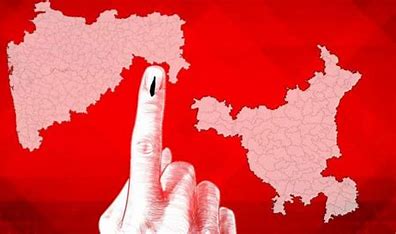Elections are not wars and political opponents are not enemies. Elections are like any other contests.
Elections have been the flavour of the month of November. They have resulted as usual in winners and losers. But more important are certain significant trends that they further unfolded.
The big takeaway of these elections relates to the high women turnout in both Maharashtra and the opposition ruled Jharkhand. Because of its likely long term impact on the politics of our country, this is, according to psephologist Yashwant Deshmukh, one big game changer, with considerable economic and social benefits for the nation. The JMM in Jharkhand and the BJP in Maharashtra have apparently discovered a new vote bank that cuts across all other loyalties based on identities of caste and religion.
Women turnout, reveals the data from the Election Commission, was 6% higher than the male turnout in Maharashtra. In Jharkhand too, it was similarly higher, thanks to the large number of women who came out to vote in the first phase of the elections. In both states, womenfolk firmly endorsed two schemes of women empowerment—the Ladki Bahin Yojana in Maharashtra and the Maiya Yojana in Jharkhand. They voted across caste and religious divides to support these schemes and thus brought the two ruling coalitions back to power.
What are the consequences of this election? Will it spur competitive populism among political parties to use women as a vote bank in future elections? This may very well prove to be true, but even if it does, it may still be a desirable outcome if it empowers women. Reason: direct benefit transfers to women help them to provide better nutrition and education to their children and invest in the micro-enterprises they manage. On the other hand, similar hand-outs to men often tend to be frittered away in drinking or other unproductive expenditure, with no multiplier effect.
Hand-outs to women are not therefore bribery. When such bottom up measures combine with top down measures like reservation for women in legislatures, expect them, all taken together, to provide greater equality of opportunity to half the population of the country. Take any indices of development and you will find the top countries in the rankings have high rates of female participation in political (especially electoral) processes, governance and the labour force. Such participation unlocks untapped talent in diverse fields; and this spurs economic development.
The other trend relates to the ethics of winning and losing. After the big picture emerged in Maharashtra, we saw the usual unseemly spectacle of politicians questioning the impartiality of the Election Commission and the integrity of the EVMs.
Elections are not wars and political opponents are not enemies. Elections are like any other contests. You play hard. You win some, you lose some. And when you lose, you shake hands with the winner, wish him all the best and move on. In the 21st century, where civil societies are torn by strife we seem to have lost this basic etiquette not only in politics but many other walks of life. This was once an integral part of a good education that prepared you for life but is now becoming increasingly rare.
Occasionally, however, you may still find instances of losing gracefully. Rohit Sharma set a fine example just before the recent elections. When India suffered a humiliating 3-0 whitewash in the Test series at home, he said, “We didn’t play our best cricket, we know and we have to accept (that). They (New Zealand) did so much better than us.”
We can thus all learn much from our sportspersons. His reaction reminds us all of an important lesson in the Bhagavad Gita for all leaders, big and small, in all walks of life—politics, sports, armed forces, business and administration: “You should also perform your duties to set an example for the good of the world. Whatever actions great persons perform, common people follow. Whatever standards they set, all the world pursues.” (Chapter 3, Verse 20-21).
We can hardly expect to build a great nation on a culture based on continuous whining and undermining of institutions. Leaders have a special responsibility. They set the tone for their followers.
* The writer was Chief Commissioner of Income-tax and is the author of the Moral Compass: Finding Balance and Purpose in an Imperfect World, Harper Collins India, 2022.

